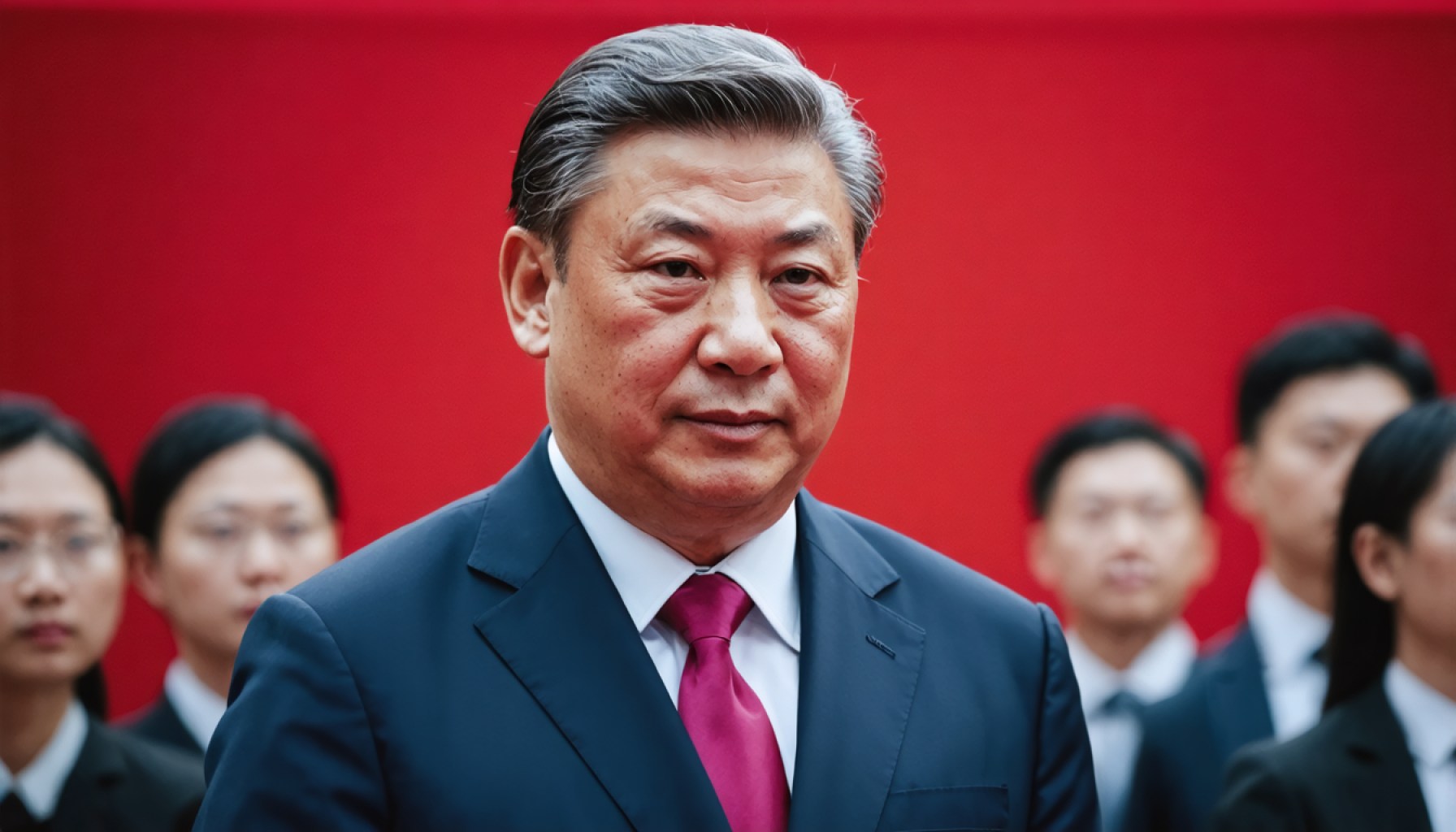- A high-profile investigation focuses on Jiang Chaoliang, a key figure in China’s Fourteenth National People’s Congress.
- Jiang, with a notable career spanning roles such as Governor of Jilin and Secretary of Hubei, faces scrutiny for serious disciplinary violations.
- The Central Commission for Discipline Inspection and the National Supervisory Commission are leading the investigation.
- The case has sparked broader discussions about accountability and transparency in China’s political hierarchy.
- This investigation reinforces China’s commitment to ethical governance and a zero-tolerance stance on corruption.
- The situation is not just a scandal but reflects a pivotal moment for strengthening trust in China’s political systems.
A cloud of uncertainty looms over China’s political corridors as news of a high-profile investigation unfolds. The spotlight is on Jiang Chaoliang, a prominent figure within the Fourteenth National People’s Congress whose career has spanned influential roles from Governor of Jilin Province to Secretary of Hubei Province. His storied journey, rooted in public service since his birth in August 1957, now faces a critical moment.
The Central Commission for Discipline Inspection and the National Supervisory Commission have launched an investigation into Jiang, citing serious violations of disciplinary laws. The announcement reverberated through the country’s political sphere, stirring discussions on accountability and transparency within the upper echelons of power.
As the inquiry progresses, questions about the integrity and conduct of officials in high-ranking positions gain traction, highlighting a broader commitment to uphold ethical governance. This development serves as a reminder of the ongoing efforts to maintain a transparent political framework and underscores the zero-tolerance stance against corruption.
For those watching from afar, the unfolding narrative is more than just a political scandal. It represents a pivotal moment for a nation striving to reinforce trust within its systems. Whether this investigation leads to further revelations remains to be seen, but the commitment to rooting out misconduct sends a powerful message about the values at the heart of China’s leadership.
Inside China’s Political Scandal: What Jiang Chaoliang’s Investigation Means for the Future
The recent investigation into Jiang Chaoliang’s conduct sheds light on the internal mechanisms of China’s political framework and its relentless pursuit of ethical governance. As the Central Commission for Discipline Inspection (CCDI) and the National Supervisory Commission probe into the serious violations of disciplinary laws by Jiang, a former high-ranking official, it raises questions about accountability, transparency, and the broader implications for China’s political landscape.
How-To Steps & Life Hacks: Understanding China’s Disciplinary Processes
1. Familiarize Yourself with the CCDI’s Role: The CCDI plays a crucial part in maintaining discipline within the Communist Party, ensuring that all members adhere to the laws and ethical standards. Understanding its processes can offer insights into how China combats corruption.
2. Follow Official Announcements: Staying updated with announcements from trusted news outlets and Chinese government releases can help you track the progress of investigations and understand their significance.
3. Analyze Political Patterns: Consider the historical context of disciplinary actions in China’s political scene to predict future outcomes.
Real-World Use Cases: Implications of the Investigation
The probe into Jiang Chaoliang is not an isolated incident. It reflects a broader strategy to reinforce ethical governance. Other sectors, such as business and civil services, often look to the political sphere for cues on regulation and discipline, potentially affecting foreign investments and international partnerships.
Market Forecasts & Industry Trends
As China intensifies its crackdown on corruption, we may see a shift towards more stringent compliance requirements in industries. This can lead to increased demand for compliance officers and legal experts familiar with China’s regulatory environment.
Reviews & Comparisons: China vs. Global Anti-Corruption Practices
China’s approach to tackling corruption, characterized by high-profile investigations and severe penalties, differs from Western practices, which often emphasize preventive measures and transparency initiatives. Both strategies have their strengths, but the effectiveness largely depends on cultural and political contexts.
Controversies & Limitations
While the zero-tolerance policy against corruption showcases China’s commitment to clean governance, it also raises concerns about potential misuse for political gains. Critics argue that some investigations may be politically motivated.
Features, Specs & Pricing: Understanding the CCDI
The Central Commission for Discipline Inspection operates as an independent body within the Communist Party of China. Its structure and operations are geared towards investigation and enforcement, with no direct impact on pricing or cost considerations in a commercial sense.
Security & Sustainability
Ensuring that political systems are free from corruption is crucial for national security and sustainability. A transparent governance framework can foster social stability and promote long-term economic growth.
Insights & Predictions
As the investigation into Jiang progresses, expect more rigorous checks on officials and possibly new regulations to enhance transparency. This may also result in policy shifts regarding how disciplinary actions are communicated to the public.
Tutorials & Compatibility: Engaging with Political Developments
Participating in webinars and online sessions with experts on Chinese politics can enhance your understanding and ability to engage with these developments critically.
Pros & Cons Overview
Pros:
– Reinforces ethical governance.
– Strengthens national and international trust in China’s systems.
– May lead to more robust regulatory frameworks.
Cons:
– Potential for politically driven investigations.
– May lead to increased tension within political ranks.
Actionable Recommendations and Quick Tips
– Stay Informed: Follow key developments through reputable news channels like BBC and CNN.
– Educate Yourself: Read books and articles about China’s political system to understand the broader context.
– Engage in Discussions: Participate in forums and discussions to hear diverse perspectives on the topic.
As this investigation unfolds, it serves as a stark reminder of the complex interplay between power, ethics, and governance in one of the world’s largest nations. Understanding these dynamics can offer invaluable insights for policymakers, business leaders, and global citizens alike.
